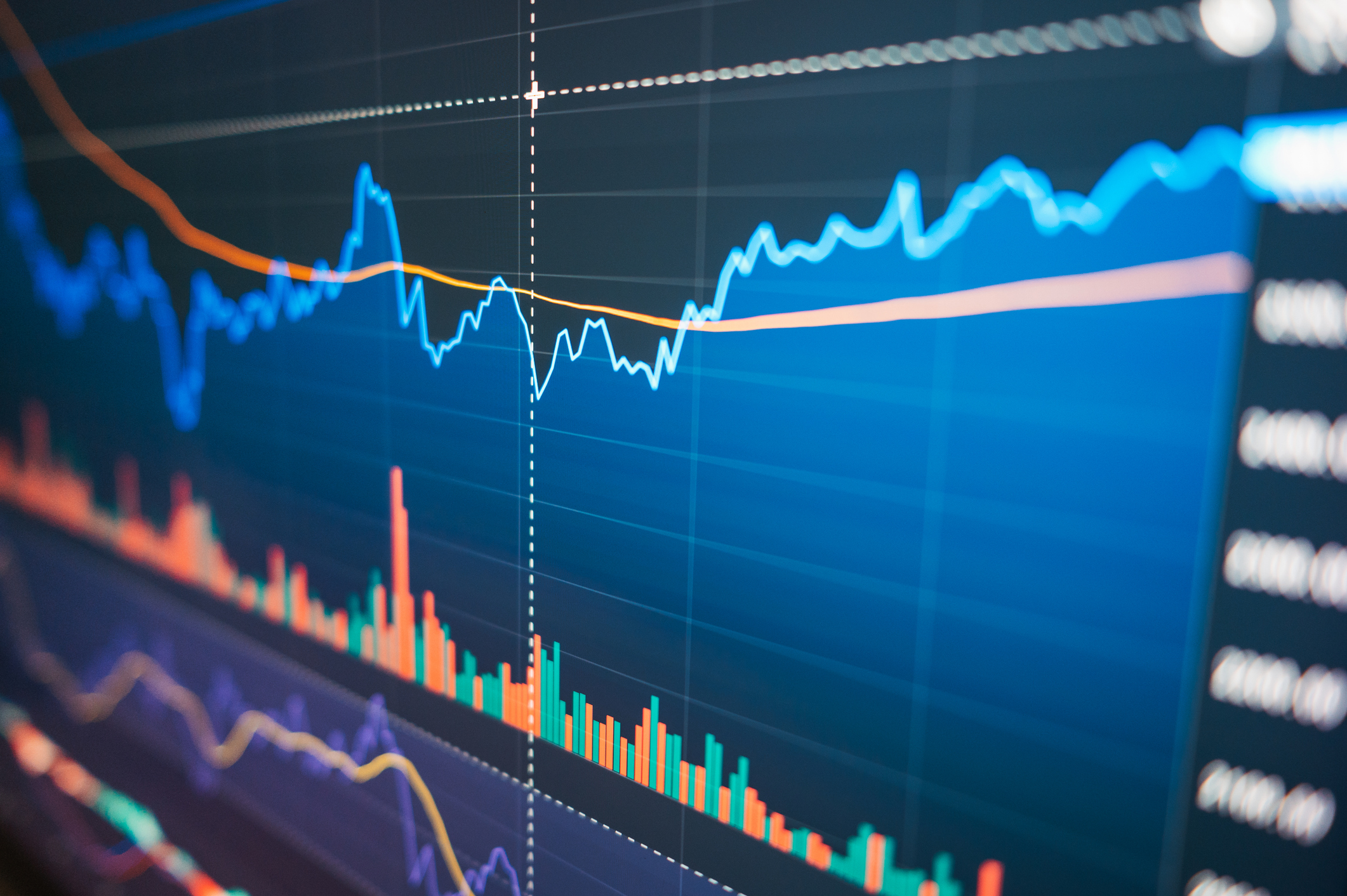Retirees, Avoid Sweep Accounts With Low Yields
Many big brokerage firms are pushing customers into lower-yielding accounts as higher-yielding money-market funds become a scarce option.

Profit and prosper with the best of Kiplinger's advice on investing, taxes, retirement, personal finance and much more. Delivered daily. Enter your email in the box and click Sign Me Up.
You are now subscribed
Your newsletter sign-up was successful
Want to add more newsletters?

Delivered daily
Kiplinger Today
Profit and prosper with the best of Kiplinger's advice on investing, taxes, retirement, personal finance and much more delivered daily. Smart money moves start here.

Sent five days a week
Kiplinger A Step Ahead
Get practical help to make better financial decisions in your everyday life, from spending to savings on top deals.

Delivered daily
Kiplinger Closing Bell
Get today's biggest financial and investing headlines delivered to your inbox every day the U.S. stock market is open.

Sent twice a week
Kiplinger Adviser Intel
Financial pros across the country share best practices and fresh tactics to preserve and grow your wealth.

Delivered weekly
Kiplinger Tax Tips
Trim your federal and state tax bills with practical tax-planning and tax-cutting strategies.

Sent twice a week
Kiplinger Retirement Tips
Your twice-a-week guide to planning and enjoying a financially secure and richly rewarding retirement

Sent bimonthly.
Kiplinger Adviser Angle
Insights for advisers, wealth managers and other financial professionals.

Sent twice a week
Kiplinger Investing Weekly
Your twice-a-week roundup of promising stocks, funds, companies and industries you should consider, ones you should avoid, and why.

Sent weekly for six weeks
Kiplinger Invest for Retirement
Your step-by-step six-part series on how to invest for retirement, from devising a successful strategy to exactly which investments to choose.
Don't let your broker sweep your cash yield into the basement.
Many major brokerage firms in recent years have eliminated higher-yielding money-market funds as a sweep option, pushing customers into lower-yielding bank sweep accounts. Often, the cash is routed to banks affiliated with the brokerage firm, plumping up the firm’s profits.
Brokerage firm Edward Jones eliminated its money-fund sweep option for new brokerage customers in February. Merrill Lynch removed money-fund sweep options for most new accounts last September, and most existing money-fund balances have been moved to deposit accounts at Bank of America, Merrill’s parent-company bank. Charles Schwab eliminated money-market funds as a brokerage sweep option for most new accounts in 2016.
From just $107.88 $24.99 for Kiplinger Personal Finance
Become a smarter, better informed investor. Subscribe from just $107.88 $24.99, plus get up to 4 Special Issues

Sign up for Kiplinger’s Free Newsletters
Profit and prosper with the best of expert advice on investing, taxes, retirement, personal finance and more - straight to your e-mail.
Profit and prosper with the best of expert advice - straight to your e-mail.
Such moves can seriously crimp customers’ yields. The 100 largest taxable money funds yield 2.25% on average, according to Crane Data, while the average brokerage sweep account now yields just 0.25% for balances up to $100,000. Schwab’s sweep options currently yield 0.33% for balances below $1 million, while the yield on Merrill’s bank sweep ranges from 0.14% to 0.75%, depending on the level of account assets.
The firms say they’re still offering competitive cash options. “Our approach allows clients to choose from among an attractive set of cash-management options while Schwab earns returns on the net interest income,” says Schwab spokesman Mike Peterson. “Those returns are then reinvested in serving clients and returning value to the firm’s stockholders.”
Brokerage firms are trying to squeeze more profits out of customers’ cash as their earnings from trading commissions have taken a hit. An industry price war has driven commissions down to just a few dollars—or even zero, in some cases. By flocking to brokerage firms offering low-cost trades, consumers “have voted with their dollars, and they want $4.95 trades instead of reasonable-paying cash,” says Peter Crane, president of Crane Data, which tracks money funds and other cash vehicles. “It’s like consumers in effect want fees they can’t see.”
Hunt for High Yields
For retirees holding significant amounts of cash, of course, maximizing cash yields may well be a top priority. If your only sweep options are low-yielding bank accounts, you can always move that cash into a money-market mutual fund.
The top-yielding money funds available to individual investors now yield north of 2.5%. Investors looking for the safest cash options may want to stick with money funds holding Treasuries and other government securities. Top government money funds yield roughly 0.2 percentage point less than top “prime” money funds, which hold corporate debt.
A few firms have retained money-market funds as sweep options. At Vanguard, for example, the only sweep option is the Vanguard Federal Money Market Fund (symbol VMFXX), a government money fund that yields about 2.3%.
Another option: Shift your cash to a high-yield bank account. Goldman Sachs’s online bank Marcus, for example, offers a 2.25% yield. Pay attention to fees and other fine print. High-yield savings accounts may require a minimum balance to avoid fees or earn the best yield. If you want some help chasing the highest yields, MaxMyInterest will spread your money among various online savings accounts and regularly reallocate the cash to capture the highest rates, for a fee of 0.08% annually.
Profit and prosper with the best of Kiplinger's advice on investing, taxes, retirement, personal finance and much more. Delivered daily. Enter your email in the box and click Sign Me Up.

-
 Nasdaq Leads a Rocky Risk-On Rally: Stock Market Today
Nasdaq Leads a Rocky Risk-On Rally: Stock Market TodayAnother worrying bout of late-session weakness couldn't take down the main equity indexes on Wednesday.
-
 Quiz: Do You Know How to Avoid the "Medigap Trap?"
Quiz: Do You Know How to Avoid the "Medigap Trap?"Quiz Test your basic knowledge of the "Medigap Trap" in our quick quiz.
-
 5 Top Tax-Efficient Mutual Funds for Smarter Investing
5 Top Tax-Efficient Mutual Funds for Smarter InvestingMutual funds are many things, but "tax-friendly" usually isn't one of them. These are the exceptions.
-
 Big Change Coming to the Federal Reserve
Big Change Coming to the Federal ReserveThe Lette A new chairman of the Federal Reserve has been named. What will this mean for the economy?
-
 9 Types of Insurance You Probably Don't Need
9 Types of Insurance You Probably Don't NeedFinancial Planning If you're paying for these types of insurance, you might be wasting your money. Here's what you need to know.
-
 If You'd Put $1,000 Into Bank of America Stock 20 Years Ago, Here's What You'd Have Today
If You'd Put $1,000 Into Bank of America Stock 20 Years Ago, Here's What You'd Have TodayBank of America stock has been a massive buy-and-hold bust.
-
 Stock Market Today: S&P 500, Nasdaq Hit New Highs on Retail Sales Revival
Stock Market Today: S&P 500, Nasdaq Hit New Highs on Retail Sales RevivalStrong consumer spending and solid earnings for AI chipmaker Taiwan Semiconductor Manufacturing boosted the broad market.
-
 Stock Market Today: Powell Rumors Spark Volatile Day for Stocks
Stock Market Today: Powell Rumors Spark Volatile Day for StocksStocks sold off sharply intraday after multiple reports suggested President Trump is considering firing Fed Chair Jerome Powell.
-
 Amazon Resale: Where Amazon Prime Returns Become Your Online Bargains
Amazon Resale: Where Amazon Prime Returns Become Your Online BargainsFeature Amazon Resale products may have some imperfections, but that often leads to wildly discounted prices.
-
 457 Plan Contribution Limits for 2026
457 Plan Contribution Limits for 2026Retirement plans There are higher 457 plan contribution limits in 2026. That's good news for state and local government employees.
-
 Apple Card Fail: Apple and Goldman Sachs Fined $89 Million
Apple Card Fail: Apple and Goldman Sachs Fined $89 MillionThe CFPB fined Apple and Goldman Sachs $89 million for the mishandling of transaction disputes and misleading iPhone purchasers about interest-free payment options.